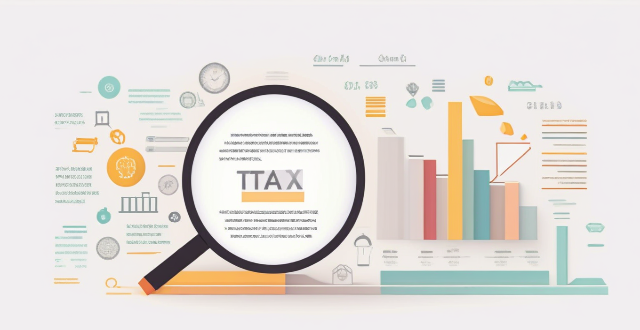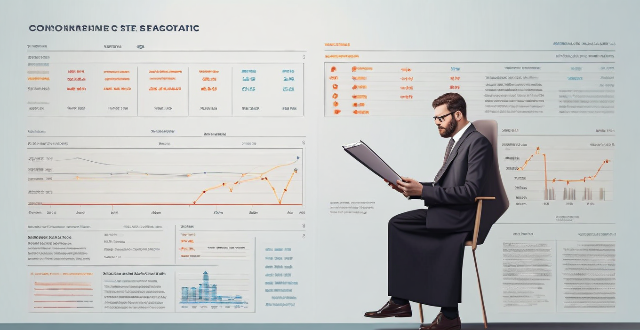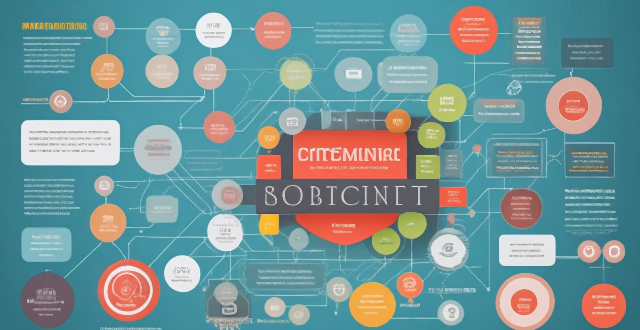Mortgage Deduct

What are the tax benefits of owning a home with a mortgage ?
The tax benefits of owning a home with a mortgage include the ability to deduct mortgage interest, property taxes, and private mortgage insurance premiums. Homeowners may also deduct interest on home equity loans if used for improvements and qualify for energy efficiency tax credits. Additionally, selling a primary residence allows for a capital gains exclusion, and working from home can provide a home office deduction. These benefits are subject to conditions and limitations; consulting a tax professional is recommended to understand their application to individual circumstances.

How does a home equity loan work in relation to my mortgage ?
A home equity loan allows homeowners to borrow against the equity in their property, serving as a second mortgage without requiring refinancing. It offers advantages such as lower interest rates and potential tax deductions but also presents risks like foreclosure and additional debt. Understanding how it works in relation to your primary mortgage is crucial for making an informed financial decision.

Can I pay off my mortgage early without penalty ?
Paying off a mortgage early can save homeowners significant interest, but it's crucial to understand potential prepayment penalties. Mortgages often include clauses that either allow for penalty-free prepayments or impose fees for early payoffs. Homeowners should review their loan agreements, contact lenders for clarification, and assess the financial implications before deciding to pay off their mortgage early. Alternative strategies like refinancing or making smaller extra payments within allowed limits can also be considered to avoid penalties and achieve financial goals.

How does a co-signer affect my mortgage application ?
A co-signer is a person who signs a loan application along with the primary borrower. The co-signer agrees to take on the responsibility of repaying the loan if the primary borrower fails to do so. In this article, we will discuss how a co-signer affects your mortgage application. The credit score of both the primary borrower and the co-signer plays a significant role in determining the eligibility for a mortgage loan. A co-signer with a good credit score can improve the chances of getting approved for a mortgage loan. However, if the co-signer has a poor credit score, it may negatively impact the loan approval process. The income and debt-to-income ratio (DTI) of both the primary borrower and the co-signer are also important factors that lenders consider when evaluating a mortgage application. If the co-signer has a high income and low DTI, it can help strengthen the application and increase the chances of approval. On the other hand, if the co-signer has a low income or high DTI, it may negatively impact the loan approval process. Lenders also consider the employment history of both the primary borrower and the co-signer when evaluating a mortgage application. A stable employment history can demonstrate financial stability and reliability, which can positively impact the loan approval process. If the co-signer has a stable employment history, it can help strengthen the application and increase the chances of approval. The assets and liabilities of both the primary borrower and the co-signer are also taken into consideration by lenders when evaluating a mortgage application. If the co-signer has significant assets and few liabilities, it can help strengthen the application and increase the chances of approval. However, if the co-signer has significant liabilities or limited assets, it may negatively impact the loan approval process. In conclusion, a co-signer can have a significant impact on your mortgage application. Their credit score, income and DTI, employment history, assets, and liabilities are all factors that lenders consider when evaluating a mortgage application. It is important to choose a co-signer who has a good credit score, stable employment history, and low DTI to increase the chances of getting approved for a mortgage loan.

What is the difference between a fixed-rate and adjustable-rate mortgage ?
The text discusses the differences between a fixed-rate and adjustable-rate mortgage. A fixed-rate mortgage has a constant interest rate throughout the loan term, offering stability and predictability in monthly payments. An adjustable-rate mortgage (ARM) has a fluctuating interest rate based on market conditions, with potential savings if rates decrease but also the risk of higher payments if rates increase. The choice between the two depends on personal financial situation, risk tolerance, and long-term goals.

How long does it take to get approved for a mortgage ?
Getting approved for a mortgage is an essential step in the home buying process. The time it takes to get approved can vary depending on several factors, including your financial situation, the type of loan you are applying for, and the lender you choose. In this article, we will discuss the different stages of the mortgage approval process and provide an estimate of how long each stage typically takes. ## Stage 1: Pre-approval Pre-approval is the initial step in the mortgage approval process. During this stage, you will need to submit various documents to your lender, such as pay stubs, tax returns, and bank statements. Your lender will then review your financial information to determine if you qualify for a mortgage and what size loan you can afford. This stage typically takes around 1-3 business days. ### Documents needed for pre-approval: - Pay stubs from the past two months - W2 forms or tax returns from the past two years - Bank statements from the past two months - Credit report ## Stage 2: Underwriting Once you have been pre-approved, your lender will begin the underwriting process. During this stage, your lender will verify the information you provided during pre-approval and ensure that you meet all of their lending requirements. This stage typically takes around 5-7 business days. ### Tasks performed during underwriting: - Verifying employment and income - Checking credit history and scores - Evaluating assets and liabilities - Assessing property value and condition ## Stage 3: Closing If your lender approves your loan application, you will move on to the closing stage. During this stage, you will sign all of the necessary paperwork to finalize your loan. This stage typically takes around 3-5 business days. ### Tasks performed during closing: - Reviewing final loan documents - Signing loan agreements and disclosures - Paying closing costs and fees - Receiving keys to your new home ## Estimated Timeline for Mortgage Approval In summary, the estimated timeline for getting approved for a mortgage is as follows: 1. Pre-approval: 1-3 business days 2. Underwriting: 5-7 business days 3. Closing: 3-5 business days Overall, it typically takes around 9-15 business days to get approved for a mortgage. However, keep in mind that this timeline can vary depending on factors such as your financial situation, the lender you choose, and any potential delays or issues that may arise during the process.

What is private mortgage insurance (PMI) and do I need it ?
Private Mortgage Insurance (PMI) is a type of insurance that protects the lender, not the borrower, in case of default on a mortgage loan. It is typically required when a homebuyer makes a down payment of less than 20% of the home's purchase price. Whether you need PMI depends on factors such as your down payment, credit score, loan-to-value ratio, and type of loan. Consider the cost of PMI and alternatives before deciding to obtain it.

What are the current mortgage rates for first-time homebuyers ?
The text discusses the current mortgage rates for first-time homebuyers, detailing the various types of loans available, such as Federal Housing Administration (FHA) Loans, Conventional Loans, and Adjustable-Rate Mortgages (ARMs), and providing key points for each type. It also offers tips for first-time homebuyers to consider when looking at mortgage rates, including improving credit scores, saving for a down payment, comparing lenders, considering all costs, and consulting a professional. The text emphasizes the importance of shopping around and comparing offers from multiple lenders to find the best rates and terms for individual financial situations.

How much down payment do I need to buy a house ?
This article discusses the factors affecting the down payment amount for buying a house, including credit score, type of mortgage, and price of the house. It also provides common down payment requirements for different types of mortgages and tips for saving for a down payment.

Can I get a mortgage with bad credit ?
Getting a mortgage with bad credit is possible but may be more challenging and come with less favorable loan terms. To increase your chances, check your credit score, work on improving it, shop around for lenders, consider alternative options like FHA or VA loans, and be prepared to make a larger down payment.

How do I qualify for a mortgage loan ?
This article provides a detailed guide on how to qualify for a mortgage loan, highlighting key factors that lenders consider such as income, credit score, debt-to-income ratio, employment history, and assets and liabilities. It also outlines steps to take in order to increase chances of success including checking your credit score, calculating your DTI, gathering financial documents, shopping around for lenders, getting pre-approved for a loan, finding a home within budget range, making an offer, and completing the closing process.

What happens if I miss a mortgage payment ?
Missing a mortgage payment can lead to immediate financial penalties, negatively impact your creditworthiness, and put your home at risk in the long term. It's essential to communicate with your lender early and explore all possible options to mitigate the consequences before they spiral out of control.

What is the process of applying for a mortgage ?
The process of applying for a mortgage involves several steps, including determining your budget, checking your credit score, shopping for lenders and loan programs, gathering necessary documents, submitting your application, underwriting and approval, and closing the deal. It's important to carefully review all paperwork and pay closing costs before officially becoming a homeowner.

Can I refinance my mortgage to get a lower interest rate ?
Refinancing a mortgage can lead to lower interest rates and monthly savings, but involves costs like closing fees. Eligibility depends on credit score, equity, and DTI ratio. Consider market conditions and break-even point before deciding. The process includes researching, applying, providing documentation, appraisal, underwriting, closing, and funding. Alternatives include recasting, loan modification, and government programs.

What are the closing costs associated with a mortgage ?
Closing costs are fees and expenses associated with finalizing a real estate transaction. These costs vary based on location, property type, and lender requirements. Common closing costs for buyers include loan origination fees, appraisal fees, credit report fees, title search and insurance fees, attorney fees, recording fees, prepaid interest, homeowner's insurance premium, property taxes, and other miscellaneous fees. It is important to budget for these expenses in advance and review all closing documents carefully to avoid any financial surprises during the home-buying process.

What are the tax benefits of donating to a sports charity event ?
Donating to a sports charity event can provide several tax benefits, including tax deductions, charitable contribution limits, carryover benefits, and qualified charitable distributions. Cash and non-cash donations can both be deducted from taxes, with the amount of the deduction depending on the donation's value and the type of charity event. The IRS limits charitable contributions based on income level and charity type, but excess amounts can be carried over to future years. Qualified charitable distributions (QCDs) allow individuals age 70½ or older to make tax-free donations directly from their IRA to a sports charity event, satisfying required minimum distributions without incurring taxes.

What are the tax benefits of investing in certain financial products ?
This article discusses the tax benefits of investing in certain financial products such as retirement accounts, stocks, bonds, and real estate investments. It explains how these investments can help reduce taxable income and save money on taxes, while also growing wealth over time. The article provides an overview of the different types of retirement accounts and their tax benefits, as well as the advantages of investing in stocks and bonds, including capital gains taxes, dividend income, and interest income. It also covers the tax benefits of real estate investments, such as depreciation, tax credits, and rental income deductions. The article emphasizes the importance of understanding the tax implications of each investment option and working with a qualified financial advisor to develop a strategy that meets individual goals and minimizes tax liability.

How can I legally minimize my taxes through tax planning ?
Tax planning is a crucial aspect of financial management that helps individuals legally reduce their tax liability. Some tips on how to minimize taxes through tax planning include maximizing retirement account contributions, taking advantage of tax credits, investing in tax-exempt bonds, considering real estate investments, utilizing education tax breaks, planning charitable giving, and timing capital gains and losses strategically. Consulting with a tax professional is recommended before making any significant financial decisions to ensure compliance with all applicable laws and regulations.

Are there any tax implications for using credit card rewards ?
The article discusses the tax implications of using credit card rewards, which vary depending on the type of reward and how it is used. Cash back rewards are generally considered taxable income and must be reported on tax returns. Travel rewards, such as airline miles or hotel points, are not usually considered taxable unless converted to cash. Merchandise rewards are typically not taxable until sold or exchanged for cash, but if the fair market value exceeds the purchase price, the difference may be considered taxable income. Charitable donations made with rewards may be deductible from taxable income, but it is important to consult with a tax professional to ensure compliance with tax laws.

What is the correlation between housing market indicators and the overall economy ?
The housing market is a significant indicator of the overall health of an economy, intertwined with employment, consumer spending, and financial markets. Housing starts and permits signal economic growth; existing home sales reflect consumer confidence; home price indexes affect household wealth and consumer spending; mortgage rates influence home purchases; inventory levels indicate market strength or challenges; builder confidence suggests future construction trends; foreclosure rates reveal economic distress; and rental market trends show limited purchasing options. These indicators provide insight into different facets of the economy, painting a comprehensive picture of the housing market's health and its relationship with the overall economic condition.

Are there any government incentives for installing energy-efficient lighting systems ?
Governments worldwide are offering incentives to encourage the installation of energy-efficient lighting systems. These incentives include tax credits, rebates, grants, and subsidies aimed at reducing energy consumption, lowering greenhouse gas emissions, and promoting sustainable development. Types of government incentives for energy-efficient lighting systems include: 1. Tax Credits: Allow businesses and individuals to deduct a portion of the cost of installing energy-efficient lighting from their taxable income. 2. Rebates: Provide a direct payment to businesses or individuals who install energy-efficient lighting systems. 3. Grants: Financial awards given to support the installation of energy-efficient lighting systems without requiring any initial investment from the recipient. 4. Subsidies: Financial assistance provided by governments to make energy-efficient lighting systems more affordable through mechanisms like low-interest loans and interest rate subsidies. Benefits of energy-efficient lighting systems include significant energy savings, reduced environmental impact, and long-term cost savings. Despite the higher initial cost compared to traditional lighting systems, the reduced energy consumption and maintenance costs can offset the investment over time, making these systems a wise financial decision.

What is the cost involved in expanding a network ?
Expanding a network involves costs in hardware, software, labor and other areas.

How do businesses implement effective tax planning ?
This comprehensive guide provides effective tax planning strategies for businesses, emphasizing the importance of understanding tax laws and regulations, hiring a qualified tax professional, timing income and expenses strategically, making use of tax credits and deductions, investing in retirement plans, leveraging tax-advantaged investments, maximizing depreciation deductions, considering alternative entity structures, and staying up-to-date on tax law changes. By implementing these strategies, businesses can minimize their tax liabilities while ensuring compliance with tax laws.

What are some common tax planning strategies for individuals ?
Tax planning is crucial for individuals to minimize taxes and maximize savings. Common strategies include maximizing retirement account contributions, utilizing tax credits/deductions, harvesting capital losses, investing tax-efficiently, timing income/expenses strategically, and using education tax benefits. Regular attention and adjustment to these strategies are necessary for effective tax management.

What are the different types of bonds available for investment ?
This text discusses the different types of bonds available for investment. It explains the characteristics and subtypes of corporate, municipal, government, mortgage-backed securities, asset-backed securities, zero-coupon, floating rate, inflation-protected, perpetual, international, taxable vs. tax-exempt, secured vs. unsecured, callable vs. non-callable, registered vs. bearer, fixed rate vs. floating rate, strip, synthetic, private placement, structured, green, and supranational bonds.

What are the tax implications of investing in cryptocurrencies ?
Investing in cryptocurrencies can have significant tax implications that investors should be aware of. Here are some key considerations: ### Capital Gains Tax Capital gains tax is a tax on the profit realized on the sale of an asset. When you sell your cryptocurrency for more than you paid for it, you may owe capital gains tax on the difference between the purchase price and the selling price. The tax rate depends on your income level and how long you held the asset before selling it. - Short-term capital gains tax applies to assets held for less than a year and is taxed at your ordinary income tax rate. - Long-term capital gains tax applies to assets held for more than a year and is typically taxed at a lower rate than short-term gains. ### Income Tax If you earn income from mining or staking cryptocurrency, you may owe income tax on that income. Mining involves using computer processing power to validate transactions on the blockchain and earn new coins as a reward. Staking involves holding coins in a wallet and earning interest or rewards for supporting the network. Both activities can generate taxable income. ### Tax Deductions You may be able to deduct certain expenses related to your cryptocurrency investments, such as trading fees, software costs, and other expenses necessary to maintain your investment. However, these deductions are subject to specific rules and limitations, so consult with a tax professional to ensure you qualify. ### Reporting Requirements The IRS requires taxpayers to report all cryptocurrency transactions on their tax returns, including purchases, sales, trades, and income earned from mining or staking. Failure to report these transactions can result in penalties and interest charges. It's essential to keep accurate records of all your cryptocurrency transactions throughout the year. ### Tax Planning Strategies To minimize your tax liability when investing in cryptocurrencies, consider implementing tax planning strategies such as: - **Holding Assets Long-Term**: By holding your cryptocurrency for more than a year before selling it, you can take advantage of lower long-term capital gains tax rates. - **Harvesting Losses**: If you have losses on some of your cryptocurrency investments, you can offset those losses against gains made on other investments to reduce your overall tax liability. - **Donating Cryptocurrency to Charity**: Donating cryptocurrency to a qualified charity can provide a tax deduction while also supporting a cause you care about. In conclusion, investing in cryptocurrencies has several tax implications that investors should be aware of and plan for accordingly. It's essential to stay informed about changing regulations and consult with a tax professional to ensure compliance with IRS requirements.

How can I effectively plan my finances for wealth growth ?
Effective Financial Planning for Wealth Growth Financial planning is crucial for achieving long-term financial goals. This guide discusses strategies for planning finances to grow wealth. It includes setting clear financial goals, creating a budget and sticking to it, building an emergency fund, investing wisely, minimizing debt and paying it off strategically, and reviewing and adjusting the plan regularly. By following these strategies, you can take control of your finances and work toward growing your wealth over time.

What role does investment play in women's wealth management ?
Investing is crucial for women's wealth management, offering benefits like diversification, long-term growth, inflation protection, tax advantages, and flexibility. By wisely investing, women can enhance their financial security and achieve their financial goals.

How can smart contracts be used to streamline financial transactions ?
Smart contracts can streamline financial transactions by automating processes, reducing costs, and increasing efficiency. They can automate payments and transfers, act as escrow services, create loan agreements, streamline insurance claims, and facilitate trading and exchanges of financial assets. As blockchain technology evolves, we can expect more innovative uses for smart contracts in the financial industry.

Are there any tax benefits associated with buying certain types of insurance ?
The text discusses the tax benefits associated with buying various types of insurance, including health insurance, life insurance, disability insurance, long-term care insurance, and homeowner's insurance. The benefits include tax-deductible premiums and tax-free death benefits for certain policies. It is emphasized that consulting a tax professional or financial advisor is crucial to understand how these benefits apply to individual situations, as tax laws vary by country and can be complex.